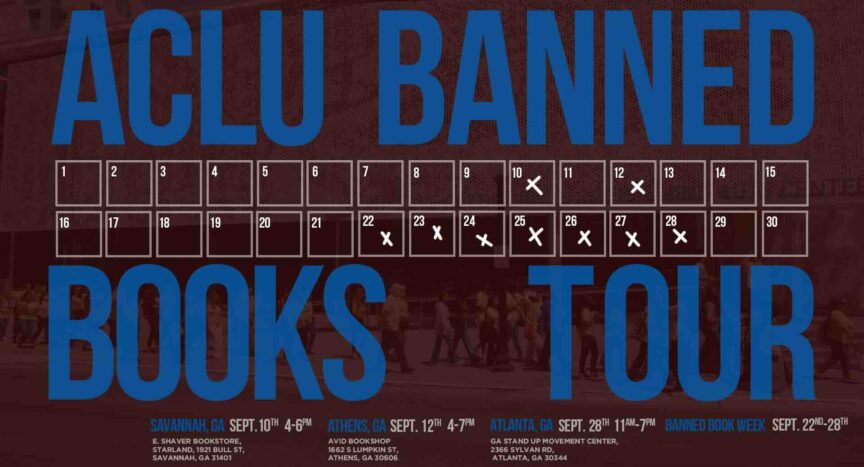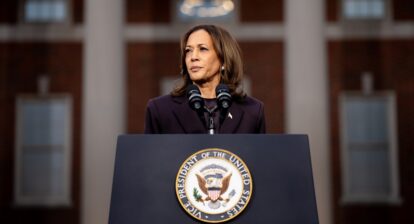I can remember the weight of the books in my school backpack as I carried them home from school. I can still feel the spines of books pressing into my skin as I brought stacks of them home from the public library.
Each book provided an opportunity to gain insight into different perspectives. They affirmed my self-worth while navigating a world that was actively invalidating and devaluing my experiences. This challenged what I thought I knew about those around me and allowed me to learn about the experiences of my ancestors, especially when members of my family couldn’t put into words the atrocities they faced growing up in the Jim Crow South.
Now, those lived experiences and histories have begun to be further erased nationwide through the rise and implementation of classroom censorship laws and book bans. A student’s ability to access classroom libraries, public libraries and school libraries is important to our nation’s growth and development, as several studies have proven that reading diverse books increases emotional intelligence and empathy in students.
This freedom to gain knowledge and learn is being threatened across the nation. A vocal minority of people are banning books that address LGBTQ+ rights, race and racism and the experiences of people with other marginalized identities as one part of a coordinated attack on inclusive education.
Over 4,000 titles were targeted for book bans in U.S. schools and libraries in 2023 alone. That same year, local officials in Tennessee attempted to censor more than 100 titles.
State officials across the country are utilizing similar playbooks to introduce and pass misguided and overly broad legislation that has resulted in the censoring of educational materials on biology, history, literature and health.
Decisions about which books belong in our schools should rest with local educators, librarians and curriculum experts. They have expertise that allows them to evaluate books in their entirety, with a focus on their literary, artistic and educational value, to ensure that curriculum and books develop students’ critical thinking skills, prepare them to engage with complex ideas and excel in their futures.
Families can and should understand what their children are being taught in school, but most parents are not calling for book bans. From 2021 to 2022, only 11 people were responsible for filing 60 percent of book challenges nationwide, while 78% of Americans, including parents of school-aged children, are known to be less likely to vote for a candidate that supports book bans.
Yet despite the lack of expertise and meager constituent support, certain state and local leaders would rather put our students at an academic and developmental disadvantage to continue a disturbing trend of authoritarian, antidemocratic power-grabbing. Their goal is to erase history to control what people are able to learn so they can rewrite narratives to fuel divisions for their own political gain. Thus, they lay the groundwork for politicians to undermine our freedoms further and intrude upon our lives.
Most recently in Tennessee, local officials in Rutherford County banned five books, including Toni Morrison’s Beloved, a book that is essential in acknowledging the horrific violence of slavery that happened here in Tennessee and across the American South.
Across the U.S., titles representing the experiences of LGBTQ+ and people of color made up 47% of attempted book bans in libraries in 2023, sending a clear message to LGBTQ+ students and students of color that they are not equal members of the school community or society.
By erasing the truths of history and people’s lived experiences and censoring discussion around the role the past has played in shaping the world we live in today, we perpetuate a systemic cycle of inequality that enables history to repeat itself.
A cycle that created our current reality in which Black people are routinely ignored and instead told to simply “pull ourselves up by our bootstraps,” without any acknowledgment of the systemic barriers that continue to stand in our way, such as redlining, police brutality, voter intimidation, food deserts, lack of access to quality education, lack of equitable health care, mortgage discrimination, and so much more.
To break these cycles of injustice, we must confront and accept our history that has upheld systemic racism and inequality, not hide from it. Through these honest reflections, we can begin to mend past injustices and pave the way for a more just future for all, starting with getting involved in our state and local elections.
We cannot allow our elected officials to gag our educators and our students by deliberately burdening educators and undermining the progress we’ve made toward a more inclusive and truthful education system.
Your local school board can protect your community’s right to shape its own education. They have the power to push back against book bans, and each and every one of our voices is crucial in creating an environment where students in our communities can receive an education where all people feel valued and accepted while building critical life skills that prepare them for future success.
Breana Staten is the Director of Strategic Communications at the ACLU of Tennessee.


